 Hundreds of millions of people around the world regularly swim, bike, run, hike or exercise, either alone or together in groups.
Hundreds of millions of people around the world regularly swim, bike, run, hike or exercise, either alone or together in groups. While swimming in a pool is a great form of exercise, swimming in the open water can present unique challenges that prevent many from venturing beyond the surf or too far from the shoreline.
Cold water, rough water, surf, currents, tides, deep water and marine life (including fish) are all obstacles that open water swimmers know all too well.
 But those that do take up the challenge share an extremely strong common bond. Put any two open water swimmers together on a flight from San Francisco to Sydney or from London to Lisbon and they will quickly form an amicable friendship and develop a healthy mutual respect. They will share non-stop stories that generates smiles, nods and laughter. They will discuss their nervousness before a race and their sense of accomplishment after. They will compare swims of different water temperatures, distances and conditions. They will talk about feeling too cold and too warm.
But those that do take up the challenge share an extremely strong common bond. Put any two open water swimmers together on a flight from San Francisco to Sydney or from London to Lisbon and they will quickly form an amicable friendship and develop a healthy mutual respect. They will share non-stop stories that generates smiles, nods and laughter. They will discuss their nervousness before a race and their sense of accomplishment after. They will compare swims of different water temperatures, distances and conditions. They will talk about feeling too cold and too warm. They can quickly understand leaking goggles and sore muscle. They know the sting of a jellyfish or the sting of cold water. They can appreciate the feeling of swimming fast, against the currents or getting disoriented in the water. They completely understand what their new-found friend is saying without being told all the details.
 Like marathon runners, deep-sea divers, mountain climbers and triathletes, open water swimmers can colorfully imagine and immediately appreciate the experiences and feelings of a fellow swimmer.
Like marathon runners, deep-sea divers, mountain climbers and triathletes, open water swimmers can colorfully imagine and immediately appreciate the experiences and feelings of a fellow swimmer. Those common ties generate warm feelings and magnifies a heartfelt sense of accomplishment - because they are now part of a greater community.
When an open water swimmer mentions to another, "I did Waikiki Roughwater Swim (or the Rottnest Channel Swim or the Great North Swim or the Midmar Mile)," the listener, if he or she has also done it, can and will immediately conjur up emotions - both positive and negative - and images - both pleasant and surprising - of the race.
Even - or especially - when the swims are solo efforts like marathon swims in one of the Oceans Seven (Irish Channel, Cook Strait, Moloka’i Channel, (4) English Channel, Catalina Channel, Tsugaru Channel, and Strait of Gibraltar), the athletes will appreciate each other's preparations and accomplishments on an intangible level of profound proportions.
The collegial atmosphere at the elite levels in major international competitions is an example of these relationships. Even after the athletes come out of the water absolutely beat, punished into submission by their competitors and the elements with some barely able to stand and others nearly unable to talk, the athletes share looks, nods, winks, hugs and handshakes that tells volumes about their deep-felt mutual respect goes beyond being able to communicate via the spoken word.
Whether you jump in the ocean and swim past the surf or you swim across a lake, this sense of open water adventure crosses all cultures, ages, backgrounds and abilities. The challenge – and new friendships – make all the efforts worthwhile.
Copyright © 2009 by World Open Water Swimming Association


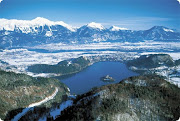
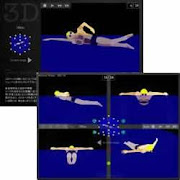
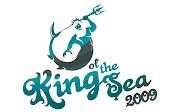



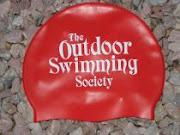

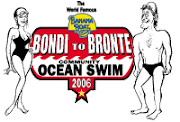


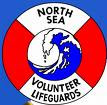
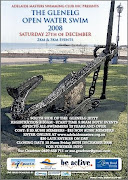





No comments:
Post a Comment